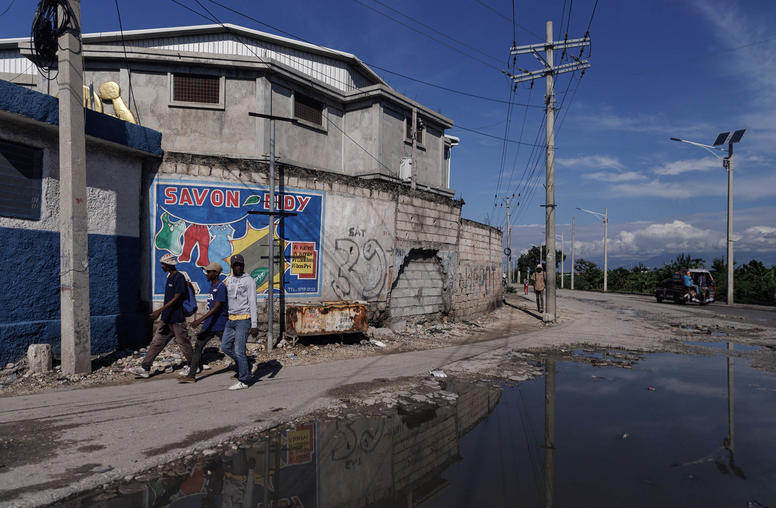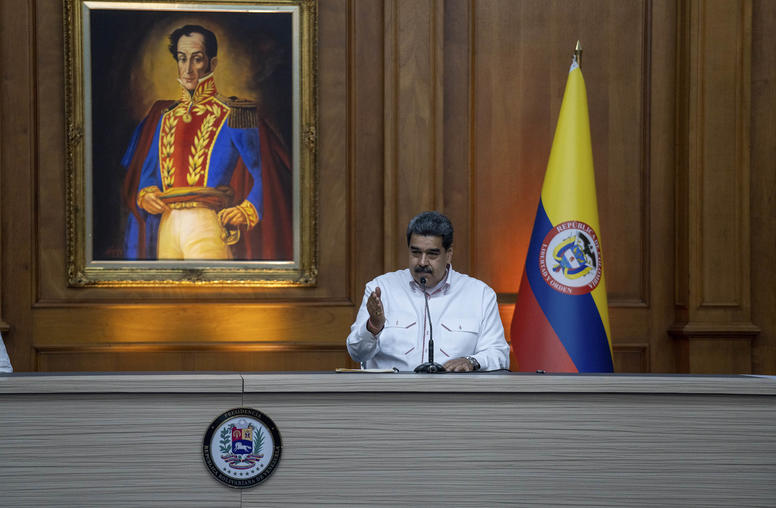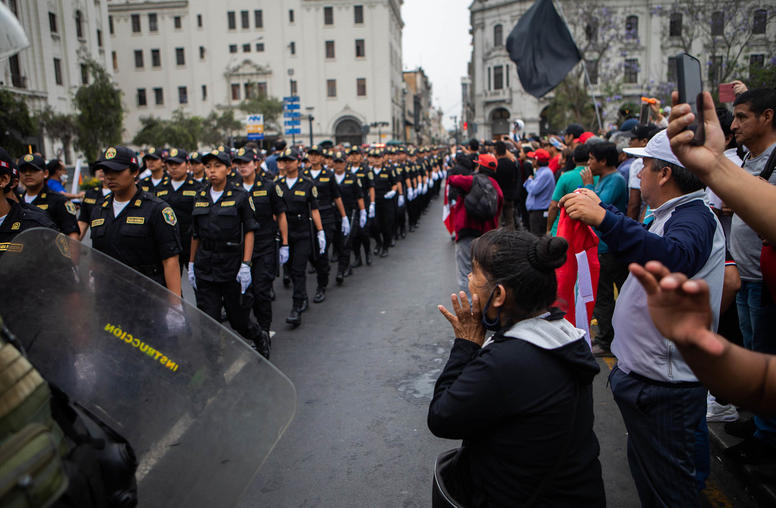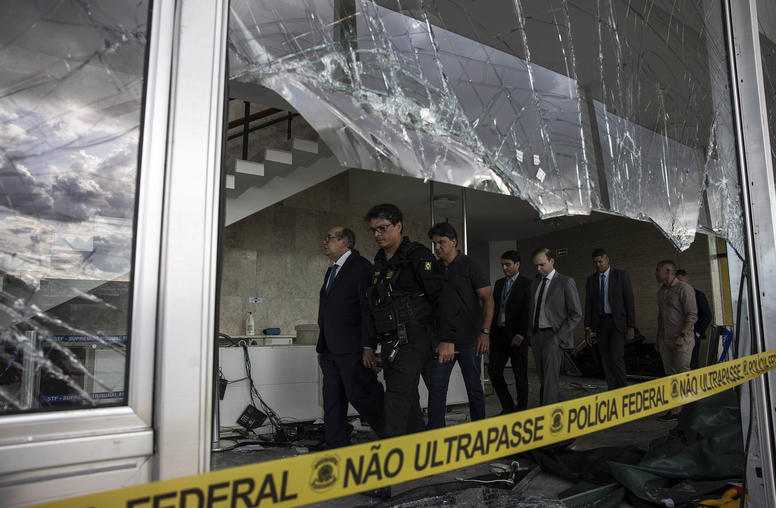Question And Answer
Publications
Articles, publications, books, tools and multimedia features from the U.S. Institute of Peace provide the latest news, analysis, research findings, practitioner guides and reports, all related to the conflict zones and issues that are at the center of the Institute’s work to prevent and reduce violent conflict.

Les Haïtiens ont-ils enfin trouvé la formule pour avancer ?
Les gros titres d'Haïti ont été si mauvais pendant si longtemps que peu attirent plus l'attention du monde. Il semble que presque chaque jour, il y a des histoires de dizaines de personnes tuées dans la capitale du pays ou de la Garde côtière américaine empêchant des centaines de migrants haïtiens d'atteindre les côtes américaines. Ensuite, il y a les titres les plus inquiétants qui disent que la guerre ou même un massacre à la rwandaise s’approchent parmi les « conditions cauchemardesques » du pays. Avec la situation d'Haïti apparemment plus inextricable que jamais, certains observateurs se sont demandé si le monde est tout simplement fatigué d'essayer d'aider Mais à la fin de l'année dernière, un accord peu médiatisé a été forgé par les Haïtiens - injectant une lueur d'espoir que le pays pourrait emprunter un nouveau chemin.

Keith Mines on Securing Haiti’s Political Future
President Biden recently asked Canada to lead a security force to stabilize Haiti. While neither side “wants to do this as something that just props up the [interim] government,” a lack of action “doesn’t mean 11 million people go away. It just means we’re not paying attention,” says USIP’s Keith Mines.

A Bipartisan U.S. Approach on Venezuela Is Possible — and Necessary
Despite divided government in Washington, there is ample room for bipartisan action on U.S. foreign policy. Countering China and buttressing Ukraine against Russia top the list, but the foremost opportunity for Republicans and Democrats to work together may be in Venezuela, where presidential elections next year offer the best chance in years for a democratic opening.

Un enfoque bipartidista estadounidense sobre Venezuela es posible – y necesario
A pesar del gobierno dividido en Washington (ejecutivo demócrata y legislativo republicano), hay un amplio espacio para la acción bipartidista en la política exterior de Estados Unidos. Hacerle control a los avances de China y apoyar a Ucrania contra Rusia encabezan la lista, pero la principal oportunidad para que republicanos y demócratas trabajen juntos puede estar en Venezuela, donde las elecciones presidenciales del próximo año ofrecen la mejor oportunidad en años para una apertura democrática.

Elite Capture and Corruption of Security Sectors
The objective of US security sector assistance is to help build effective, accountable, responsive, transparent, and legitimate security sectors in partner nations to address common security risks. Such action ultimately benefits US national interests, as when the United States modernized West Germany’s military during the Cold War; when US security sector support to South Korea helped the United States deter regional threats; and when, in Ukraine, US security sector assistance contributed to success in fending off Russian aggression in 2022. Similarly, the United States helped Georgia turn its traffic police into one of the most trusted institutions in the country, supported Albania as it updated the governance of its security forces, and assisted Colombia in making progress toward ending its long-standing armed conflict.

Rage and Repression in Peru: Restoring Citizen Trust and Public Order
Peruvian national governments have lurched from crisis to crisis in recent years. Corruption allegations repeatedly ignite political turmoil, pitting narrowly elected presidents against deeply divided legislatures. The last four presidents were all either impeached or forced to resign and the four before that completed their terms only to face criminal charges or investigations after leaving office.

Rabia y represión en el Perú: restableciendo la confianza ciudadana y el orden público
Las distintas administraciones del Perú han experimentado continuos ciclos de crisis en los últimos años. Escándalos de corrupción han agitado el mundo político repetidamente, enfrentando a presidentes contra congresos profundamente divididos. Los últimos cuatro presidentes fueron removidos del poder u obligados a renunciar y los cuatro anteriores completaron sus mandatos solo para enfrentar o investigaciones judiciales después de dejar el cargo.

Honduras Makes Progress in Tamping Violence — But at What Cost?
“Historic reduction in the homicide rate,” the Honduran government tweeted in a thread celebrating security achievements during President Xiomara Castro’s first year in office. The country’s official rate of 36 murders per 100,000 people in 2022 (down six points from 2021) still places Honduras among Latin America’s — and the world’s — most violent countries. But it represents clear progress since the early 2010s, when the impoverished Central American country seemed caught in a spiral of violence linked to street gangs and drug traffickers, with rates topping 85 murders per 100,000.

Honduras progresa en controlar la violencia, ¿es posible hacerlo de forma sostenible?
“Reducción histórica en la tasa de homicidios”, tuiteó el gobierno hondureño en un hilo celebrando los logros en materia de seguridad durante el primer año en el cargo de la presidenta Xiomara Castro. La tasa oficial del país de 36 asesinatos por cada 100.000 habitantes en 2022 (seis puntos menos que en 2021) mantiene a Honduras entre los países más violentos de América Latina y del mundo. Pero representa un claro avance desde principios de la década de 2010, cuando el empobrecido país centroamericano parecía atrapado en una espiral de violencia vinculada a las pandillas callejeras y al narcotráfico, con tasas que superaban los 85 asesinatos por cada 100.000 habitantes.

An Assault on Brazil’s Government Raises Hemispheric Alarm Bells
On January 8, hundreds of protesters fueled by rage over election results invaded federal buildings in Brazil’s capital city Brasília while tens of thousands gathered outside military installations across the country, openly calling for a coup.